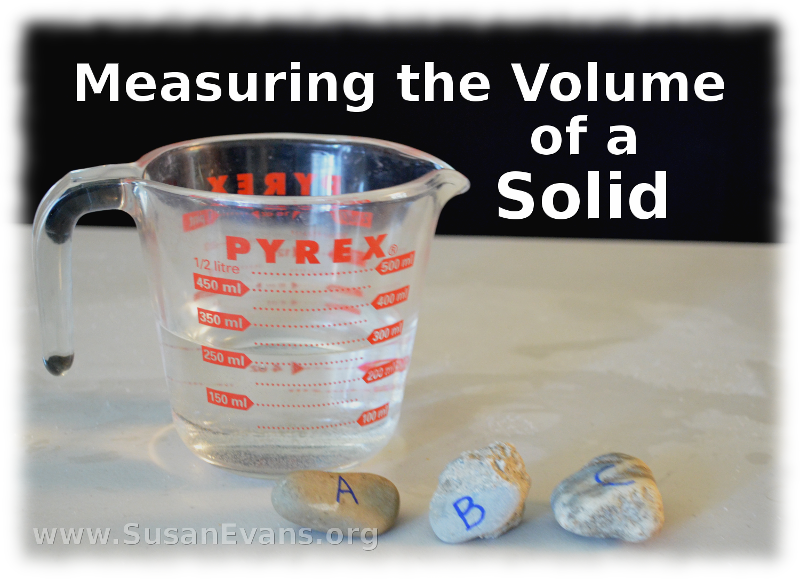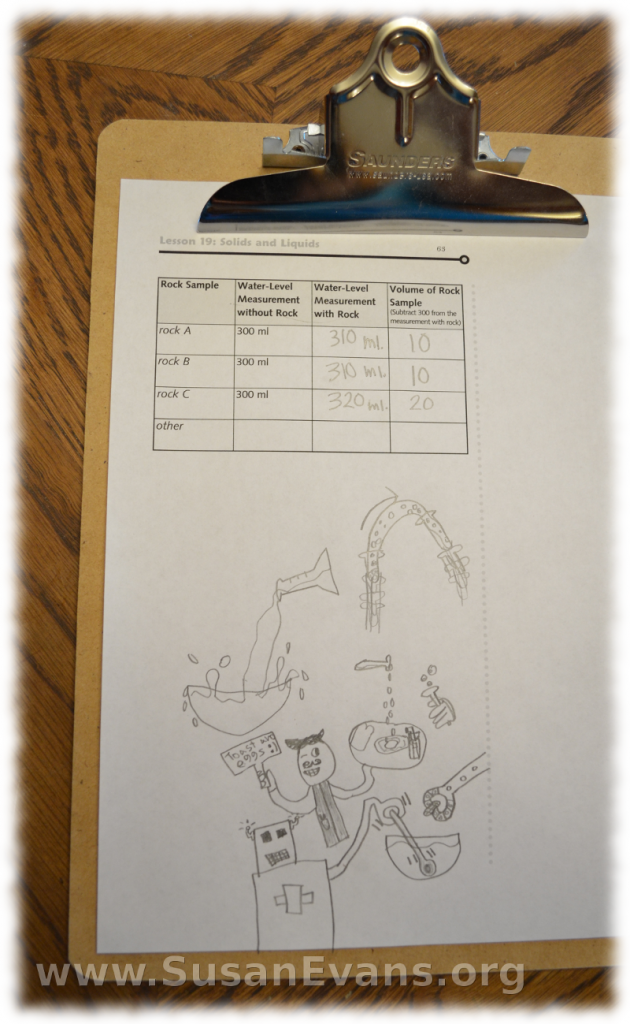This post contains affiliate links. I was compensated for my work in writing this post.
What happens when you have weird-shaped objects, and you want to know their volume? Find out a clever way to do just that! We will be measuring the volume of a solid in our experiment today. My younger two children are using Christian Kids Explore Chemistry by Bright Ideas Press, and this is one of the fun experiments in the book.
Grab three interesting-shaped rocks from your backyard, and label them A, B, and C with a permanent marker. Grab a glass measuring cup and pour 300 ml of water into it. Now you will want to place one rock into the water. Measure how much the water went up. How high is the water now? Write it down. Then subtract the number from the original number (300 ml). You will find out the volume of the rock! Whatever amount of water the rock displaced is the amount of space it filled up, or its volume.
Remove Rock A from the water and measure Rock B in the same way. Was the rock smaller, larger, or the same volume? What about Rock C? Our third rock had the largest volume of the three rocks.
Measuring the Volume of a Solid Experiment
Now you can see how we performed this fun experiment:
Make sure to write down each of your measurements on the chart provided in the book. It helps if you clip the page to a clip board so that you can write your measurements as you are doing the experiment. If you want, you can doodle all over the rest of your page, as if you were a mad scientist!
Tags: Bright Ideas Press, chemistry, Christian Kids Explore Chemistry, hands-on science, Homeschooling, science






Great! I like that you attached a video. I will definitely use this. Thanks.
Science experiments lend themselves well to video because experiments are very hands-on. The experiments help the kids to internalize the science concepts.
A good, hands on lesson (I enjoyed the doodles, too). Science is an excellent subject for hands-on learners.
Yes. My kids are all hands-on learners, and my daughter really loves to doodle!
Oh, this would be a great activity with Katie’s new beakers!
Yes, it would be perfect to do this with beakers!
This is such a great idea and activity to do with the kids. Thanks for sharing.